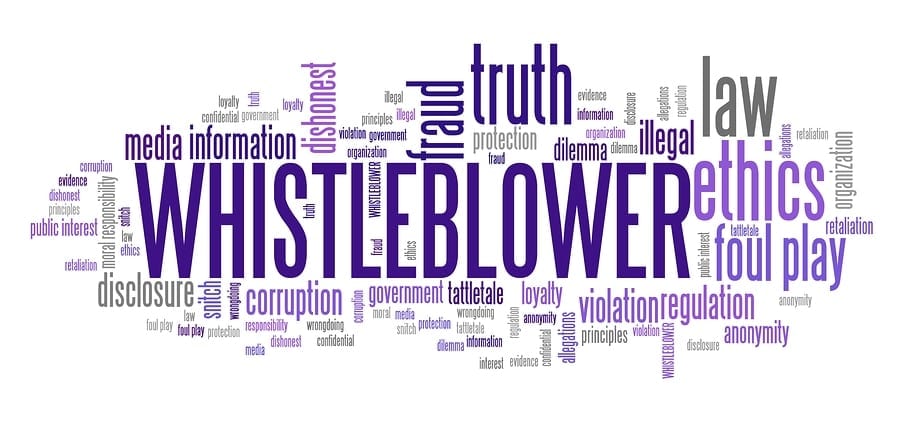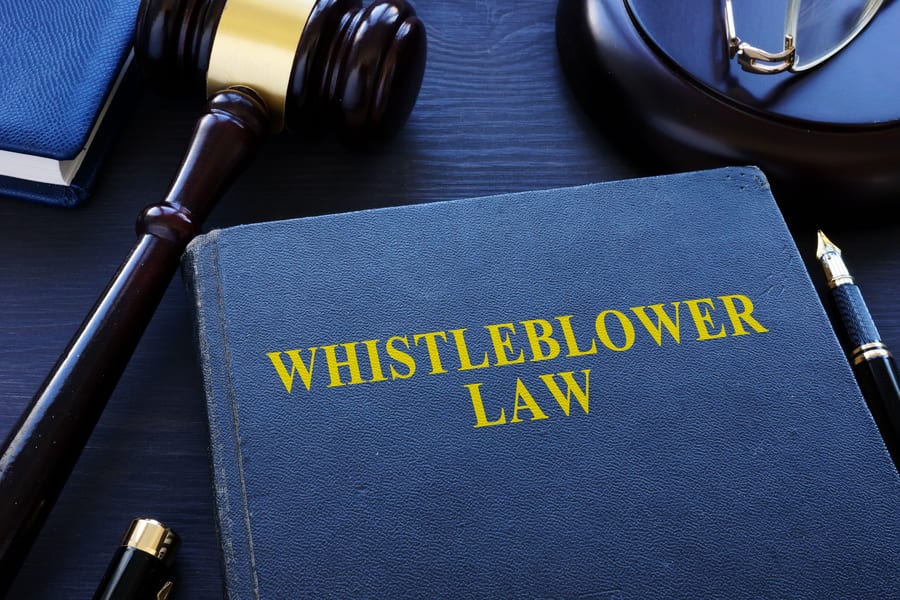Tips for Whistleblowers – Reporting Misconduct in the Federal Workplace

Reporting misconduct at work can be a scary decision. You worry about the consequences you might face from your employer. However, federal laws prohibit employers from retaliating against employees who report issues such as fraud, discrimination, and wage violations.
Although laws are supposed to protect federal workers, many employers retaliate anyway by demoting or firing whistleblowers. Below are tips you should follow to protect your rights and improve your chance of a successful case if you plan to report your employer for wrongdoing.
Review Your Severance Agreement or Release
Some employers require terminated employees to sign a severance agreement. This contract allows the employee to receive severance pay and benefits. However, an agreement might include terms preventing the employee from pursuing claims against the employer, such as whistleblower action under the False Claims Act. If you signed a severance agreement, review it thoroughly to determine whether it contains provisions regarding whistleblower claims.
Keep Your Complaints to Yourself
You are rightfully furious about the misconduct occurring at work. However, complaining about it to a supervisor or coworker is risky. Staying quiet is particularly crucial when an employer engages in criminal acts, such as fraud. You can obtain the necessary evidence by doing your job and avoiding conversations about what’s happening. If your boss hears what you’re saying to other people in the office, they might fire you. You’ll lose the opportunity to gain insider information.
Use Documents You Can Legally Take
You might have access to documents you can use to support your case. However, be careful when taking or copying documents. Your employer might accuse you of stealing trade secrets or corporate property.
Although stopping an employer’s wrongdoing is important, the legal process can be more challenging if they make a valid claim against you. For example, you might face legal trouble if you take documentation protected by attorney-client privilege.
Check State Laws Before Recording Conversations
Recordings are valuable evidence in whistleblower cases. A taped conversation of your employer discussing their illegal actions can strengthen your case against them.
However, some states prohibit recorded conversations under specific circumstances. Before obtaining recordings, you should confirm the laws where you live to avoid civil and criminal penalties.
Don’t Post About the Misconduct on Social Media
Staying away from social media and written communications with others about the case is critical. You should avoid posting to social media before filing the whistleblower claim and during legal proceedings. Although you might feel tempted to update your friends and family, the defense lawyer could find a way to use your posts against you.
Pay Attention to Time Limits
The U.S. Securities and Exchange Commission can award money to eligible whistleblowers who provide information leading to enforcement action involving over $1,000,000. That means you could recover compensation for your efforts. However, someone else might file before you. If that happens, you can lose your chance of pursuing a case yourself.
Some employer misconduct, such as fraud, is subject to a statute of limitations. A statute of limitations allows a specific timeframe to file a case against another party. If the statutory period passes before you initiate your whistleblower claim, your case will likely not proceed further.
Hire an Experienced Whistleblower Protection Lawyer
You should never proceed with reporting misconduct against your employer without hiring an experienced lawyer. Whistleblower lawyers know federal laws and procedures. They can protect your rights and guide you through the complex process.
At The Vaughn Law Firm, we represent clients facing unfair treatment by their employers for reporting misconduct. Call us at 877-615-9495 for a confidential consultation at our Decatur, GA, or Washington, DC, office to learn more about how we can help with your whistleblower claim.




